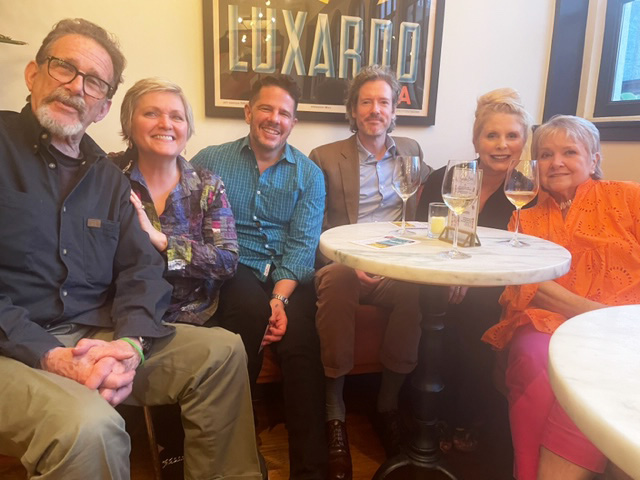
BY SCOTT STIFFLER | After nearly a decade’s worth of members moving away and other means of matriculation left its Board of Directors so sparsely populated that the gathering of two practically constituted a quorum, a repopulated and robust incarnation of the 300 West 18th/19th Streets Block Association (18/19) emerged in 2018.
Ready to advocate for those living between Eighth and Ninth Aves.—and willing to engage with peer BAs to advance across-the-board concerns—18/19’s Board of Directors drew from the experiences of longtime Chelsea resident Bill Borock. The white-haired, fuzzy-mustached twin prone to bone-dry humor and stubborn resolve was, at the time, president of the Council of Chelsea Block Associations (CCBA). Borock proved a fount of contact info, action plans, and cautionary tales accrued while addressing landlord/tenant issues, appealing to City departments on crime and quality of life matters, and garnering the action-oriented support of local electeds.
“Bill spent a lot of time with us and gave us a lot of information about being a block association,” recalled current 18/19 BA Board of Directors member David Sloss, who tuned into hyperlocal concerns shortly after he and his wife moved to Chelsea in 2016. The BA’s soft reboot came about as “We got to know a couple of our neighbors,” said Sloss, “and figured out we all had the same concerns—quality of life matters, mainly, including sanitation and transportation concerns… Many of the issues we had at the time are similar to the ones we’re having now.”
“There was a large nightclub that wanted to open on the northeast corner of 19th Street and Ninth Ave.,” recalled Sloss, of an early mobilizing effort. “It was very outsized for the neighborhood and the block.” Dozens of nearby residents—some BA members, some not—showed up at a meeting of Manhattan Community Board 4’s Business Licenses & Permits committee to voice their discomfort, if not outright disapproval. The strength in numbers approach worked: The community board recommended the State Liquor Authority deny the liquor license application, and the applicant withdrew from the project altogether.
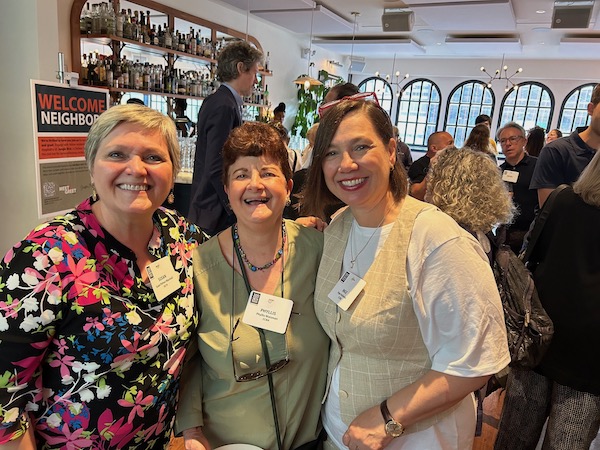
Other issues less conducive to a Yes or No vote have lingered, however, one centered around “the voluminous buildup of trash” alongside the Bayard Rustin Educational Campus (351 W. 18th St. btw. 8th & 9th Aves.). “We continue to work with the electeds,” notes Sloss, who says the BA “thinks the solution ultimately is proper containerization.”
But who’ll pay for it—and will a new compliment of containers exceed currently available storage space? Who’d move them back and forth on pickup days, and will there be funds to replace damaged or stolen containers? Even with money in hand, how long will it take for the replacement purchases to arrive? What height and color will win the support (or at least avoid the ire) of nearby neighbors—and how many, if any, rat mitigation features will these new containers have?
Finding answers to the litany of questions that arise throughout the lifespan of any given project almost always requires communication (and possibly, partnership) with any number of City departments, nearby BAs, and other area stakeholders. Sometimes—and yes, it does happen—all involved will agree on a strategy. Other times, life’s little delays push project completion goals back time and time again. One week, the meeting is packed—the next, two out of five with voting power aren’t able to attend. So, it turns out there’s no easy, swift, and lasting answer to a BA’s seemingly straightforward goal of keeping our streets and sidewalks clean.
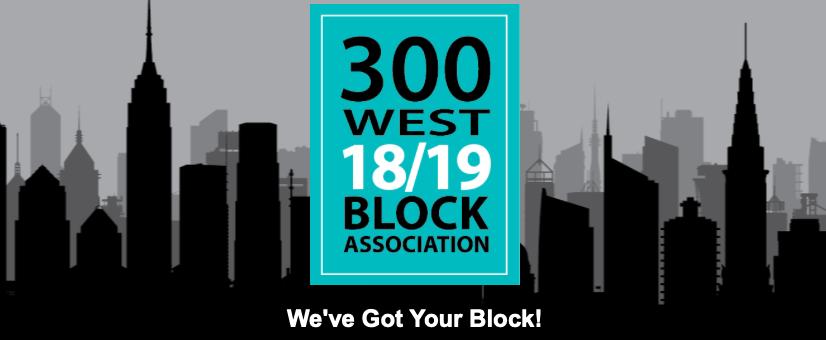
“Sometimes, we have a flurry of activity when an issue needs our attention,” says Sloss. “Other times, several months will go by when a long-term project won’t be ready [for its next phase] for quite a while.” If ultimate success is the goal, the chances of any given issue getting resolved markedly improves when it arrives on a BA’s agenda. Ongoing effort from more than just one person makes all the difference. That strength in numbers approach, along with the commitment to see an issue through to the end, is in every BA’s DNA. Or bedrock. Or playbook.
But playing the long game doesn’t necessarily require the dogged efforts of every name on the BA’s membership roster. Allowing your name on that list is not necessarily a commitment to be on the front lines of every new project the collective undertakes. That said, having every eligible individual come on board remains a challenge, said Sloss, who emphasized that there are no obligations or expectations, beyond the simple act of joining up. And the best way to encourage that is simply getting people to show up. “Our new members tend to be those who’ve found their way to our meetings… and stayed,” said Sloss.
To that end, the 300 West 18th/19th Streets Block Association held their Second-Annual Meet & Greet on June 10. Taking place in the bright and welcoming upstairs room of Jungle Bird restaurant, the event welcomed members from other BAs alongside anyone with a desire to get to know their neighbors a little better. The cash bar and complimentary finger foods, calibrated to foster serendipitous schmoozing, packed the house as planned.
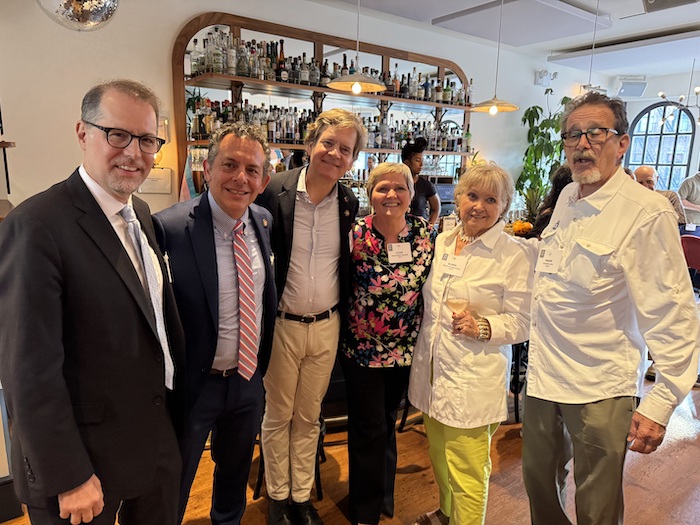
“It was wonderful to see so many familiar faces and meet new friends from our community,” said 18/19’s Steering Committee, in an email sent following the event. It was, they said, “a testament to our shared commitment to building a stronger neighborhood together.”
Local electeds were among those in attendance: Manhattan Borough President Mark Levine, NY State Senator Brad Hoylman-Sigal, and NY State Representative Tony Simone alongside NYC Council Member Erik Bottcher’s Chief of Staff (Carl Wilson) and Liaison to Community Board 4 (Jordan Feiner).
“Their presence enriched our discussions and highlighted our collective dedication to improving our community,” said the Steering Committee, who also noted how BA members and guests “exchanged ideas, shared concerns, and reaffirmed our resolve to work alongside our elected officials to address local issues. Whether it’s enhancing our quality of life or advocating for important neighborhood initiatives, our unity is our strength.”
Note: If you’d like to know more, to subscribe to 18/19’s mailing list here. Follow the BA on Twitter (aka “X”) via @1819nyc and on Facebook by clicking here. If you would like to volunteer, have an idea for a project to benefit the community, or would like to bring an issue to the BA’s attention, send an email to 1819nyc@gmail.com.
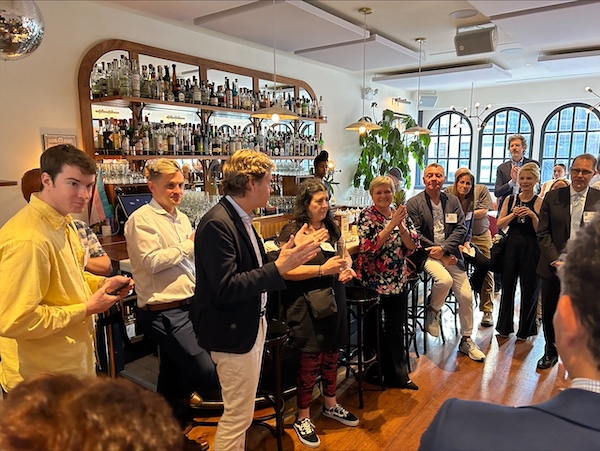
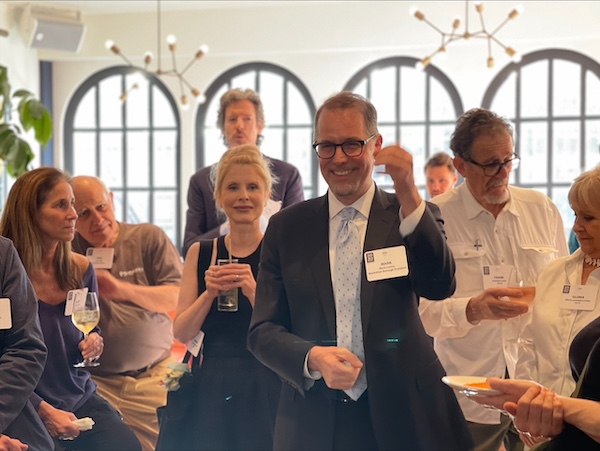
—END—
Chelsea Community News is an independent, hyperlocal news, arts, events, info, and opinion website made possible with the help of our awesome advertisers and the support of our readers. Our Promise: Never a paywall, no pop-up ads, all content is FREE. With that in mind, if circumstances allow, please consider taking part in our GoFundMe campaign (click here). To make a direct donation, give feedback, send a Letter to the Editor, or contact founder/editor, email Scott Stiffler, via scott@chelseacommunitynews.com.
To join our subscriber list, click here. It’s a free service providing regular (weekly, at least) Enewsletters containing links to recently published content. Subscribers also will be sent email with “Sponsored Content” in the subject line. That means it’s an exclusive message from one of our advertisers, whose support, like yours, allows us to offer all content free of charge.

Pingback: New Pres. Sees CCBA Achieving ‘Real Results’ via ‘Steady Engagement and Strategic Pressure’ - Chelsea Community News